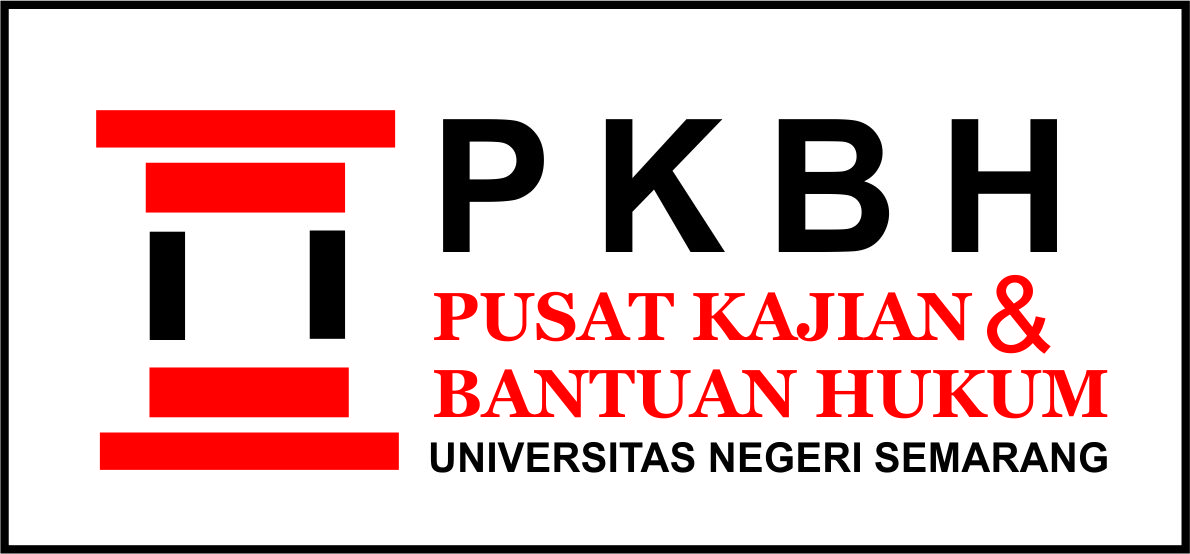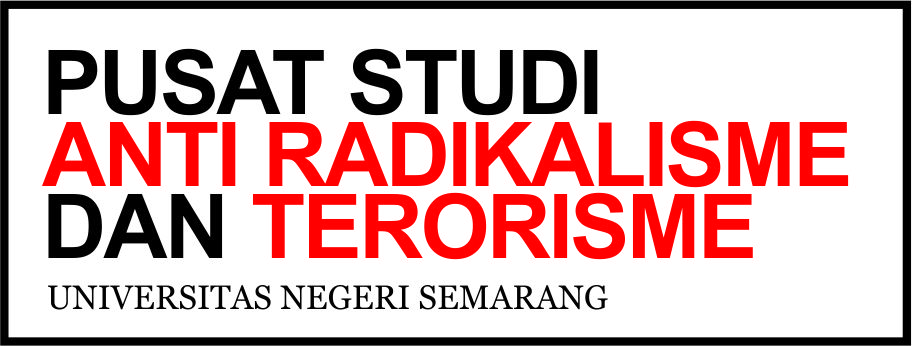The Fate of Indigenous Peoples' Rights Recognition After the Enactment of the National Criminal Code
Abstract
Keywords
Full Text:
PDFReferences
Abdurrahman. Mekanisme Pengakuan Masyarakat Hukum Adat. Jakarta: Pusat Penelitian dan Pengembangan Sistem Hukum Nasional Badan Pembinaan Hukum Nasional Kemenkumham, 2015.
Altmann, Philipp. “Una Breve Historia de Las Organizaciones Del Movimiento Indígena Del Ecuador.” Antropología. Cuadernos de Investigación 12 (2013): 105–21. https://doi.org/10.26807/ant.v0i12.76.
Anggoro, Teddy. “Kajian Hukum Masyarakat Hukum Adat Dan HAM Dalam Lingkup Negara Kesatuan Republik Indonesia.” Jurnal Hukum Dan Pembangunan 36, no. 4 (2006): 487–98. https://scholar.archive.org/work/ijyo3es3kbgvdgmjhukfn2ykjq/access/wayback/http://jhp.ui.ac.id/index.php/home/article/download/1477/1392.
Arizona, Yance. “Masyarakat Adat Dalam Kontestasi Pembaruan Hukum.” Badan Perencanaan Pembangunan Nasional, May 15, 2013. https://www.academia.edu/3537826/Masyarakat_adat_dalam_kontestasi_pembaruan_hukum.
Bahiej, Ahmad. “Perbandingan Jenis Pidana Dan Tindakan Dalam KUHP Norwegia, Belanda, Indonesia, Dan RUU KUHP Indonesia.” Jurnal Sosio-Religia 7, no. 4 (2008): 1–15. https://d1wqtxts1xzle7.cloudfront.net/52371619/15_Perbandingan_Jenis_Pidana_Norwegia_Belanda_Indonesia-libre.pdf?1490819325=&response-content-disposition=inline%3B+filename%3D15_Perbandingan_Jenis_Pidana_Norwegia_Be.pdf&Expires=1715295678&Signature=See7GK.
Becker, Marc. “Comunistas, Indigenistas e Indígenas En La Formación de La Federación Ecuatoriana de Indios y El Instituto Indigenista Ecuatoriano.” Revista de Ciencias Sociales 27 (2007): 135–44. https://www.yachana.org/research/iconos.pdf.
Borch, Merete. “Rethinking the Origins of Terra Nullius.” Australian Historical Studies 32, no. 117 (2001): 222–39. https://doi.org/10.1080/10314610108596162.
Dahlan, Muhammad. “Rekognisi Hak Masyarakat Hukum Adat Dalam Konstitusi.” Undang: Jurnal Hukum 1, no. 2 (2019): 187–217. https://doi.org/10.22437/ujh.1.2.187-217.
Deci, Edward L., and Richard M. Ryan. “Self-Determination Theory.” Handbook of Theories of Social Psychology 1, no. 20 (2012): 416–36. https://pure.ewha.ac.kr/en/publications/self-determination-theory-2.
Hisyam, Muhammad. “Islam and Dutch Colonial Administration: The Case of Panghulu in Java.” Studia Islamika 7, no. 1 (2000): 91–118. https://doi.org/10.15408/sdi.v7i1.717.
Irwansyah, Irwansyah. Penelitian Hukum; Pilihan Metode & Praktik Penulisan Artikel. Yogyakarta: Mirra Buana Media, 2020.
Ismi, Hayatul. “Pengakuan Dan Perlindungan Hukum Hak Masyarakat Adat Atas Tanah Ulayat Dalam Upaya Pembaharuan Hukum Nasional.” Jurnal Ilmu Hukum 3, no. 1 (2013): 21–43. https://doi.org/10.30652/jih.v3i01.1024.
Lutz, Ellen, and Nicole Ledema. “Addressing Indigenous Rights at the United Nations.” Cultural Survival, 2010. https://www.culturalsurvival.org/publications/cultural-survival-quarterly/addressing-indigenous-rights-united-nations.
Mandasari, Zayanti. “Politik Hukum Pengaturan Masyarakat Hukum Adat (Studi Putusan Mahkamah Konstitusi).” Jurnal Hukum Ius Quia Iustum 21, no. 2 (2014): 227–50. https://doi.org/10.20885/iustum.vol21.iss2.
Mombauer, Annika. “Sir Edward Grey, Germany, and the Outbreak of the First World War: A Re-Evaluation.” International History Review 38, no. 2 (2016): 301–25. https://doi.org/10.1080/07075332.2015.1134622.
Muganyizi, Fadhili Ferdinand. Negotiating Recognition of ‘Indigenous Peoples’ in Tanzania: Development, Conflict and Rights Struggles. Den Haag: International Institute of Social Studies, 2017. https://thesis.eur.nl/pub/41672/.
Mukantardjo, Rudy Satriyo. “Rancangan KUHP Nasional Menghindari Pidana Mati.” Jurnal Legislasi Indonesia 2, no. 1 (2018): 37–52. https://e-jurnal.peraturan.go.id/index.php/jli/article/download/284/171.
Mustawa, Mustawa, Abd. Haris Hamid, and Sunardi Purwanda. “Refund of State Financial Losses in Realizing the Welfare State of Law.” Amsir Law Journal 4, no. 1 (2022): 51–61. https://doi.org/10.36746/alj.v4i1.125.
Odello, Marco. The United Nations Declaration on the Rights of Indigenous Peoples. London: Routledge, 2016.
Pareke, J. T., and Fahmi Arisandi. “Pengakuan Masyarakat Hukum Adat Dan Perlindungan Wilayah Adat Di Kabupaten Rejang Lebong.” Bina Hukum Lingkungan 4, no. 2 (2020): 313–28. https://www.bhl-jurnal.or.id/index.php/bhl/article/view/119.
Purwanda, Sunardi, Auliah Ambarwati, Darmawati Darmawati, and Prayudi Prayudi. “Haluan Kesejahteraan Sosial Dalam Diskursus Teori-Teori Keadilan.” Jurnal Dinamika Hukum 25, no. 1 (2024): 152–61. https://doi.org/10.35315/dh.v25i1.9819.
Rachman, Noer Fauzi, and Mia Siscawati. Masyarakat Hukum Adat Adalah Penyandang Hak, Subjek Hukum, Dan Pemilik Wilayah Adatnya; Memahami Secara Kontekstual Putusan Mahkamah Konstitusi Republik Indonesia Atas Perkara Nomor 35/PUU-X/2012. Yogyakarta: INSISTPress, 2014.
Ragawino, Bewa. Pengantar Dan Asas-Asas Hukum Adat Indonesia. Bandung: FISIP Universitas Padjajaran, n.d.
Santillana, Alejandra. Proceso Organizativo y Límites Del Proyecto Político de Pachakutik. Quito: Instituto de Estudios Ecuatorianos, 2006.
Simarmata, Rikardo. “Menyongsong Berakhirnya Abad Masyarakat Adat: Resistensi Pengakuan Bersyarat.” In International Advocacy and Capacity Building for Indigenous Peoples in Indonesia. Aliansi Masyarakat Adat Nusantara, 2004. https://www.academia.edu/13006509/.
Simbaña, Floresmilo. “El Movimiento Indígena y El Actual Proceso de Transición.” América Latina En Movimiento 423 (2007): 21–24. https://www.alainet.org/es/active/23034?language=en.
Sulaiman, Sulaiman, Muhammad Adli, and Teuku Muttaqin Mansur. “Ketidakteraturan Hukum Pengakuan Dan Perlindungan Masyarakat Hukum Adat Di Indonesia.” Law Reform 15, no. 1 (2019): 12–24. https://doi.org/10.14710/lr.v15i1.23352.
Suteki, and Galang Taufani. Metodologi Penelitian Hukum (Filsafat, Teori, Dan Praktik). Depok: Rajawali Pers, 2018.
Thontowi, Jawahir. “Perlindungan Dan Pengakuan Masyarakat Adat Dan Tantangannya Dalam Hukum Indonesia.” Jurnal Hukum Ius Quia Iustum 20, no. 1 (2013): 21–36. https://doi.org/10.20885/iustum.vol20.iss1.
Trujillo, Jorge León. De Campesinos a Ciudadanos Diferentes. Quito: CEDIME/Abya-Yala, 1994.
Tylor, Charles. Multiculturalism: Examining the Politics of Recognition. Princeton: Princeton University Press, 1994.
Vallenhoven, Cornelis van. Orang Indonesia Dan Tanahnya. Yogyakarta: INSISTPress, 2020.
Wibowo, Agung. “Masyarakat Adat Menggugat Dunia.” Tirto.id, 2021. https://tirto.id/gjrc.
Refbacks
- There are currently no refbacks.











